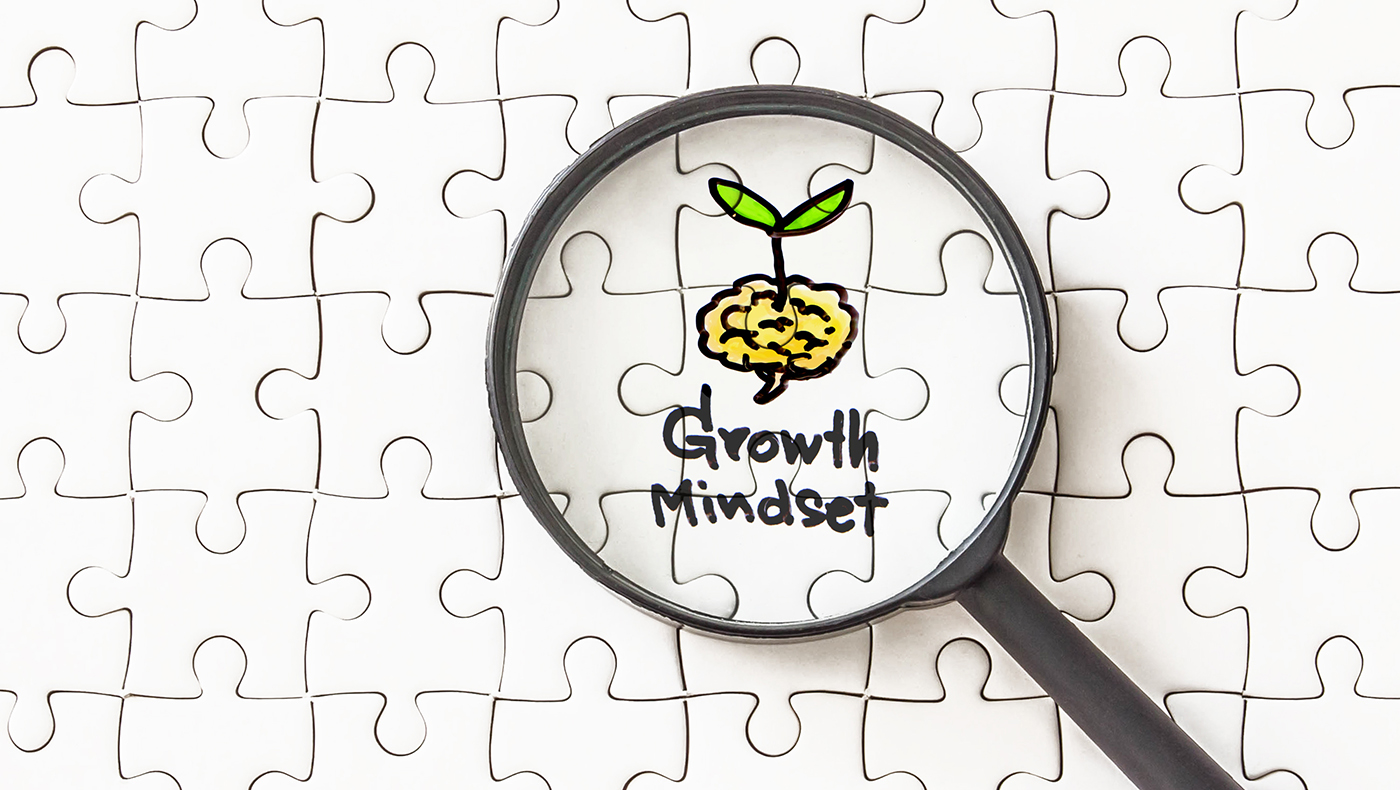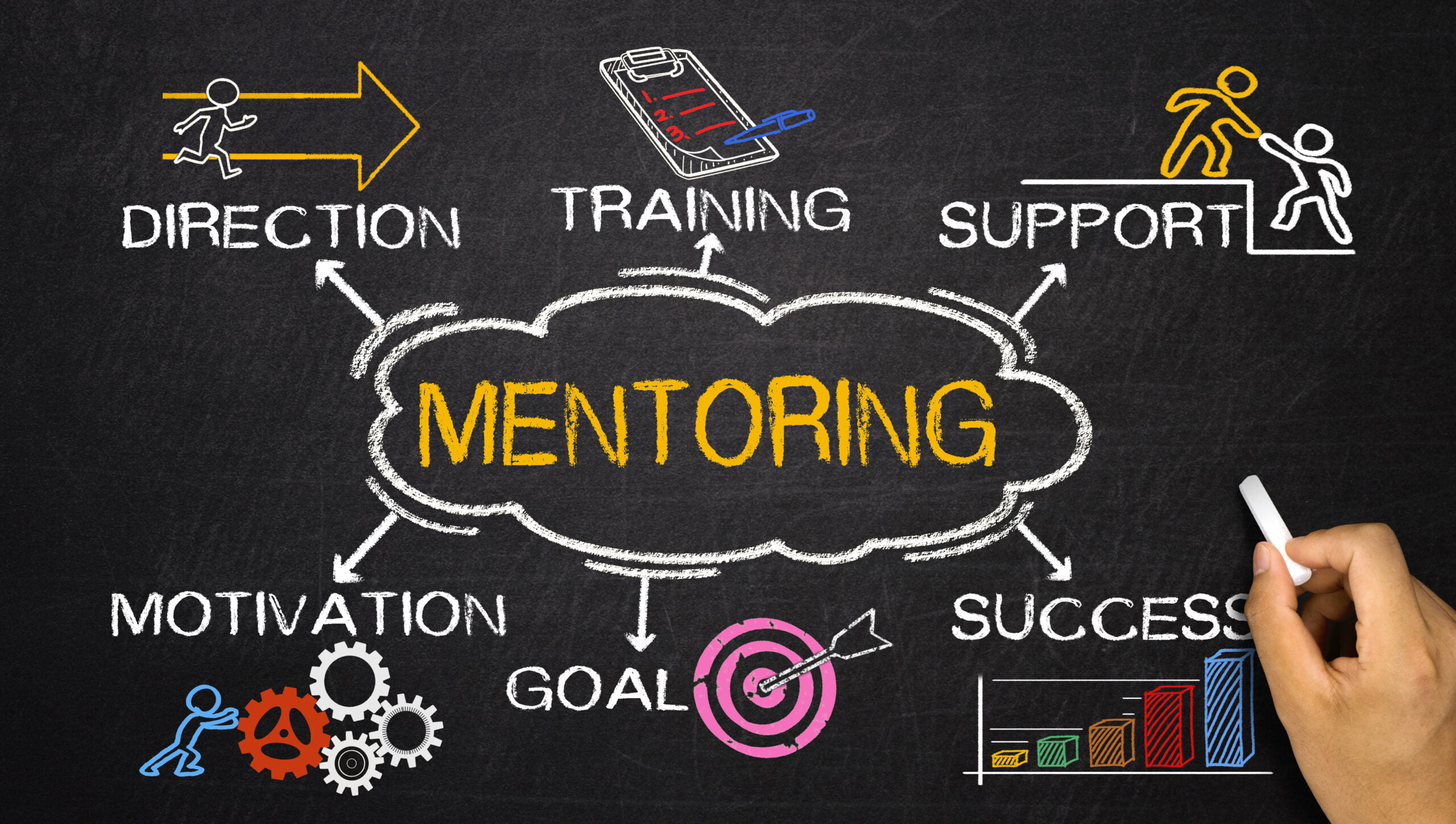Embracing a Growth Mindset in the Face of Uncertainty
Entrepreneurship is inherently uncertain, with unexpected challenges and setbacks arising at every turn. However, it is precisely this uncertainty that makes a growth mindset so essential for entrepreneurs. By embracing a growth mindset, business owners can transform uncertainty into opportunity, driving innovation and learning from failures. A growth mindset allows entrepreneurs to stay adaptable in a rapidly changing business environment, where the ability to pivot and adjust is crucial for survival.
At its core, a growth mindset is the belief that abilities and intelligence can be developed through dedication and hard work. This mindset is essential for entrepreneurs, as it enables them to approach challenges with a sense of curiosity and experimentation, rather than fear and resistance. By embracing a growth mindset, entrepreneurs can cultivate a culture of continuous learning and improvement, where mistakes are seen as opportunities for growth and development.
The benefits of a growth mindset are numerous. For one, it allows entrepreneurs to stay open to new ideas and perspectives, which is critical for driving innovation and staying ahead of the competition. A growth mindset also enables entrepreneurs to build resilience, bouncing back from setbacks and failures with renewed energy and determination. Perhaps most importantly, a growth mindset fosters a sense of adaptability, allowing entrepreneurs to navigate the ever-changing landscape of business with ease and agility.
In today’s fast-paced business environment, a growth mindset is no longer a nicety, but a necessity. With the rise of digital technologies and the increasing pace of globalization, entrepreneurs must be able to adapt quickly to changing circumstances. By embracing a growth mindset, entrepreneurs can stay ahead of the curve, driving innovation and growth in their businesses. As the business landscape continues to evolve, one thing is clear: a growth mindset is essential for entrepreneurs who want to succeed in the long term.
How to Develop a Flexible and Adaptable Approach to Business Challenges
Developing a flexible and adaptable approach to business challenges is crucial for entrepreneurs who want to stay ahead of the curve. By embracing experimentation, learning from feedback, and staying open to new opportunities and perspectives, business owners can cultivate a mindset that is agile and responsive to changing circumstances.
One key strategy for developing adaptability is to encourage experimentation within the organization. This can involve setting aside dedicated time and resources for exploring new ideas and approaches, as well as creating a culture that rewards calculated risk-taking and learning from failure. By embracing experimentation, entrepreneurs can stay ahead of the competition and identify new opportunities for growth and innovation.
Another important aspect of adaptability is learning from feedback. This involves creating a culture that values feedback and uses it as an opportunity for growth and improvement. By soliciting feedback from customers, employees, and partners, entrepreneurs can gain valuable insights into their business and make data-driven decisions that drive growth and innovation.
In addition to experimentation and feedback, staying open to new opportunities and perspectives is also critical for adaptability. This can involve seeking out new sources of information and inspiration, such as industry conferences, networking events, and online communities. By staying open to new ideas and perspectives, entrepreneurs can stay ahead of the curve and identify new opportunities for growth and innovation.
By incorporating these strategies into their business approach, entrepreneurs can develop a flexible and adaptable mindset that is essential for success in today’s fast-paced business environment. By embracing experimentation, learning from feedback, and staying open to new opportunities and perspectives, business owners can cultivate a mindset that is agile and responsive to changing circumstances, and drive growth and innovation in their organizations.
Furthermore, a flexible and adaptable approach to business challenges can also help entrepreneurs to develop a stronger entrepreneurial mindset and adaptability. By being open to new ideas and perspectives, entrepreneurs can develop a more nuanced understanding of their business and the market, and make more informed decisions that drive growth and innovation.
The Power of Resilience in Overcoming Entrepreneurial Obstacles
Resilience is a critical component of the entrepreneurial mindset, enabling business owners to bounce back from setbacks, maintain motivation, and stay focused on their long-term goals. In the face of uncertainty and adversity, resilience is what separates successful entrepreneurs from those who struggle to overcome obstacles.
So, what exactly is resilience, and how can entrepreneurs cultivate it in their business? Resilience is the ability to absorb and recover from difficult situations, such as financial setbacks, failed product launches, or unexpected changes in the market. It involves developing a growth mindset, learning from failures, and using those lessons to inform future decisions.
One key strategy for building resilience is to develop a strong support network. This can include mentors, peers, and community members who can provide guidance, encouragement, and valuable connections. By surrounding themselves with people who understand the challenges of entrepreneurship, business owners can tap into a wealth of knowledge and experience that can help them navigate difficult situations.
Another important aspect of resilience is self-care. Entrepreneurs often put their businesses first, neglecting their own physical and mental health in the process. However, neglecting self-care can lead to burnout, decreased motivation, and a lack of resilience. By prioritizing self-care, entrepreneurs can maintain their energy and focus, even in the face of adversity.
In addition to building a support network and prioritizing self-care, entrepreneurs can also cultivate resilience by developing a growth mindset. This involves embracing challenges as opportunities for growth and learning, rather than threats to their ego or business. By adopting a growth mindset, entrepreneurs can develop a sense of purpose and meaning that drives them to keep pushing forward, even in the face of obstacles.
By cultivating resilience, entrepreneurs can develop a powerful tool for overcoming obstacles and achieving long-term success. Whether it’s building a support network, prioritizing self-care, or developing a growth mindset, there are many strategies that entrepreneurs can use to build their resilience and stay focused on their goals.
Furthermore, resilience is closely tied to adaptability, another key component of the entrepreneurial mindset. By developing resilience, entrepreneurs can also improve their ability to adapt to changing circumstances, such as shifts in the market or unexpected changes in their industry.
Staying Ahead of the Curve: The Importance of Continuous Learning and Development
In today’s fast-paced business environment, staying ahead of the curve is crucial for entrepreneurs who want to maintain a competitive edge. Continuous learning and development are essential for entrepreneurs who want to stay up-to-date with the latest industry trends, best practices, and emerging technologies.
One of the key benefits of continuous learning and development is that it enables entrepreneurs to stay adaptable in a rapidly changing business environment. By staying up-to-date with the latest industry trends and best practices, entrepreneurs can identify new opportunities for growth and innovation, and make informed decisions that drive business success.
Another important aspect of continuous learning and development is that it helps entrepreneurs to develop a growth mindset. By embracing lifelong learning, entrepreneurs can develop a mindset that is open to new ideas and perspectives, and is willing to take calculated risks to drive innovation and growth.
So, how can entrepreneurs prioritize continuous learning and development in their business? One strategy is to set aside dedicated time for learning and professional development, such as attending industry conferences, workshops, and online courses. Another strategy is to seek out mentorship and guidance from experienced entrepreneurs and industry experts.
In addition to formal learning and development opportunities, entrepreneurs can also prioritize continuous learning by staying curious and seeking out new experiences and challenges. This can involve taking on new projects, seeking out new clients or customers, or exploring new markets and industries.
By prioritizing continuous learning and development, entrepreneurs can develop a powerful tool for driving business success and staying ahead of the curve. Whether it’s through formal learning and development opportunities or informal learning and exploration, entrepreneurs who prioritize continuous learning and development are better equipped to adapt to changing circumstances and drive innovation and growth in their business.
Furthermore, continuous learning and development are closely tied to the entrepreneurial mindset and adaptability. By prioritizing continuous learning and development, entrepreneurs can develop a mindset that is open to new ideas and perspectives, and is willing to take calculated risks to drive innovation and growth.
Building a Support Network: The Value of Mentorship and Community in Entrepreneurship
Building a support network is a crucial aspect of entrepreneurship, providing entrepreneurs with the guidance, encouragement, and valuable connections they need to succeed. A support network can include mentors, peers, and community members who can offer valuable insights, advice, and support.
Mentorship is a particularly important aspect of a support network, providing entrepreneurs with access to experienced and knowledgeable individuals who can offer guidance and advice. Mentors can help entrepreneurs navigate the challenges of starting and growing a business, providing valuable insights and advice on everything from business planning to marketing and sales.
In addition to mentorship, community is also a vital component of a support network. Joining a community of entrepreneurs can provide access to a network of peers who can offer support, encouragement, and valuable connections. Community members can share their experiences, offer advice, and provide a sounding board for ideas and challenges.
Another important aspect of a support network is the role of peers. Peers can offer a unique perspective on the challenges and opportunities of entrepreneurship, providing valuable insights and advice on everything from business operations to marketing and sales. Peers can also offer support and encouragement, helping entrepreneurs to stay motivated and focused on their goals.
By building a support network, entrepreneurs can gain access to a wealth of knowledge, experience, and connections that can help them succeed. Whether it’s through mentorship, community, or peer support, a support network can provide the guidance, encouragement, and valuable connections that entrepreneurs need to thrive.
Furthermore, a support network can also help entrepreneurs to develop a stronger entrepreneurial mindset and adaptability. By surrounding themselves with experienced and knowledgeable individuals, entrepreneurs can gain new insights and perspectives on the challenges and opportunities of entrepreneurship.
In addition, a support network can also provide entrepreneurs with access to valuable resources and connections that can help them to grow and succeed. Whether it’s through introductions to potential customers or partners, or access to valuable tools and resources, a support network can provide the connections and resources that entrepreneurs need to thrive.
Leading by Example: How Entrepreneurial Mindset and Adaptability Impact Team Culture
As a leader, it’s essential to recognize the impact that your entrepreneurial mindset and adaptability can have on your team culture. By embracing a growth mindset, being open to new ideas and perspectives, and demonstrating a willingness to take calculated risks, you can foster a culture of innovation, experimentation, and continuous learning within your organization.
One of the key ways that entrepreneurial mindset and adaptability can impact team culture is by encouraging a culture of experimentation and learning from failure. By embracing a growth mindset, you can create an environment where team members feel comfortable taking risks, trying new approaches, and learning from their mistakes.
Another important aspect of entrepreneurial mindset and adaptability is the ability to stay agile and responsive to changing circumstances. By being open to new ideas and perspectives, you can create an environment where team members feel empowered to suggest new approaches and solutions, and where the organization can quickly adapt to changing market conditions.
In addition to fostering a culture of innovation and experimentation, entrepreneurial mindset and adaptability can also impact team culture by promoting a culture of continuous learning and development. By prioritizing ongoing learning and professional development, you can create an environment where team members feel supported and encouraged to develop their skills and knowledge.
By leading by example and demonstrating an entrepreneurial mindset and adaptability, you can create a positive and productive team culture that is well-equipped to drive business success. Whether it’s through encouraging experimentation and learning from failure, staying agile and responsive to changing circumstances, or promoting a culture of continuous learning and development, entrepreneurial mindset and adaptability can have a profound impact on team culture.
Furthermore, entrepreneurial mindset and adaptability can also impact team culture by promoting a culture of accountability and ownership. By empowering team members to take ownership of their work and make decisions, you can create an environment where team members feel motivated and engaged, and where the organization can drive business success.
In order to lead by example and demonstrate an entrepreneurial mindset and adaptability, it’s essential to prioritize ongoing learning and professional development. This can involve seeking out new training and development opportunities, attending industry conferences and events, and staying up-to-date with the latest industry trends and best practices.
Measuring Success: How to Evaluate the Effectiveness of Your Entrepreneurial Mindset
Evaluating the effectiveness of your entrepreneurial mindset is crucial to driving business success and achieving your long-term goals. By measuring your adaptability, resilience, and overall business performance, you can identify areas for improvement and make data-driven decisions to drive growth and innovation.
One key metric for measuring the effectiveness of your entrepreneurial mindset is adaptability. This can be measured by tracking your ability to pivot and adjust to changing market conditions, customer needs, and industry trends. By monitoring your adaptability, you can identify areas where you need to improve and make adjustments to stay ahead of the curve.
Another important metric for measuring the effectiveness of your entrepreneurial mindset is resilience. This can be measured by tracking your ability to bounce back from setbacks, maintain motivation, and stay focused on your long-term goals. By monitoring your resilience, you can identify areas where you need to improve and make adjustments to build a stronger, more resilient mindset.
In addition to adaptability and resilience, overall business performance is also an important metric for measuring the effectiveness of your entrepreneurial mindset. This can be measured by tracking key performance indicators (KPIs) such as revenue growth, customer acquisition, and retention. By monitoring your overall business performance, you can identify areas where you need to improve and make adjustments to drive growth and innovation.
By using these metrics to evaluate the effectiveness of your entrepreneurial mindset, you can make data-driven decisions to drive business success and achieve your long-term goals. Whether it’s through improving your adaptability, building a stronger, more resilient mindset, or driving overall business performance, measuring the effectiveness of your entrepreneurial mindset is crucial to achieving success in today’s fast-paced business environment.
Furthermore, evaluating the effectiveness of your entrepreneurial mindset can also help you to identify areas where you need to improve and make adjustments to stay ahead of the curve. By monitoring your adaptability, resilience, and overall business performance, you can identify areas where you need to improve and make adjustments to drive growth and innovation.
In order to effectively evaluate the effectiveness of your entrepreneurial mindset, it’s essential to establish clear goals and objectives, track key metrics and KPIs, and make data-driven decisions to drive business success. By using these strategies, you can evaluate the effectiveness of your entrepreneurial mindset and make adjustments to drive growth and innovation in your business.
Sustaining Momentum: Strategies for Maintaining an Entrepreneurial Mindset Over Time
Maintaining an entrepreneurial mindset over the long-term requires a combination of strategies that help you stay motivated, avoid burnout, and continue to innovate and adapt in a rapidly changing business environment. By incorporating these strategies into your daily routine, you can sustain momentum and achieve long-term success.
One key strategy for maintaining an entrepreneurial mindset is to prioritize self-care. This includes getting enough sleep, exercising regularly, and taking breaks to recharge and refocus. By taking care of your physical and mental health, you can maintain the energy and motivation needed to drive business success.
Another important strategy for maintaining an entrepreneurial mindset is to stay curious and open to new ideas and perspectives. This can involve attending industry conferences and events, reading books and articles, and seeking out new experiences and challenges. By staying curious and open to new ideas, you can continue to innovate and adapt in a rapidly changing business environment.
In addition to prioritizing self-care and staying curious, it’s also essential to build a support network of mentors, peers, and community members who can provide guidance, encouragement, and valuable connections. By surrounding yourself with people who understand the challenges and opportunities of entrepreneurship, you can gain new insights and perspectives that can help you stay motivated and focused on your long-term goals.
Furthermore, maintaining an entrepreneurial mindset requires a willingness to take calculated risks and experiment with new approaches and strategies. By embracing a growth mindset and staying open to new opportunities and perspectives, you can continue to innovate and adapt in a rapidly changing business environment.
By incorporating these strategies into your daily routine, you can maintain an entrepreneurial mindset over the long-term and achieve long-term success. Whether it’s through prioritizing self-care, staying curious, building a support network, or taking calculated risks, there are many ways to sustain momentum and drive business success.
In order to maintain an entrepreneurial mindset over the long-term, it’s also essential to establish clear goals and objectives, track key metrics and KPIs, and make data-driven decisions to drive business success. By using these strategies, you can stay focused on your long-term goals and make adjustments to drive growth and innovation in your business.







